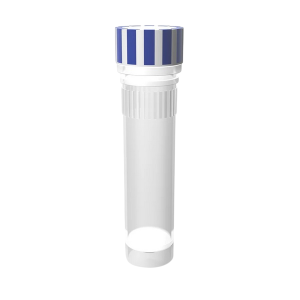IBI Scientific RPR-101 Recombinant Rat Protein VEGF-A 20.6 kDa 25 ug
- Specification
- Overview
- Customers Also Bought
- Your Recently Viewed Items
- Reviews

Overview
Predicted Molecular Weight: 20.6 kDa
The recombinant rat VEGF-A protein is designed to exhibit a predicted molecular weight of 20.6 kDa, ensuring consistency and reliability in applications such as cell culture, VEGF-A ELISA standards, and Western blot controls. This protein is lyophilized and shipped at room temperature without any carrier protein, preserving its integrity and ease of use. Reconstitution is simple-just dissolve in sterile PBS containing at least 0.1% carrier protein, such as BSA, or cell assay media to achieve optimal activity.
No Endotoxins, TAGS, and Carrier-Free
IBI recombinant proteins, including VEGF-A, are expressed in a Pichia pastoris (yeast) system that offers significant advantages over traditional E. coli systems. This method ensures proper protein folding and post-translational modifications, resulting in superior bioactivity. The recombinant VEGF-A protein is free from endotoxins, HIS-TAGS, and other artificial residues, making it highly pure and functional. VEGF-A plays a crucial role in vasculogenesis and angiogenesis, aiding in oxygen supply restoration and tissue repair through blood vessel formation. Its broad applicability in research ensures accurate modeling of vascular endothelial processes, offering unmatched quality and performance for advanced studies.
Technical Information:
What is an acceptable carrier protein for recombinant protein reconstitution?
A carrier protein is an additional protein added to the lyophilized recombinant protein during reconstitution to increase the stability of the diluted recombinant protein during storage, freezing, and use.
Bovine Serum Albumin (BSA) is the most common carrier protein used for recombinant protein reconstitution. However, if working with bovine recombinant protein, use a non-bovine carrier protein such as Equine Serum Albumin (ESA).
If using the recombinant protein for in vitro cell culture stimulation, it is often useful to reconstitute the recombinant protein directly in the complete cell culture medium containing serum or other acceptable carrier protein instead of a BSA/ESA solution.
How do I reconstitute the recombinant protein?
Most of the recombinant proteins can be reconstituted in sterile phosphate-buffered saline with 0.1% carrier protein, which is most commonly Bovine Serum Albumin (BSA).
If protein vial is left unopened, it can be stored at room temperature or -20°C for up to 12 months.
Once protein is open and reconstituted, it must be stored at -20°C and is viable for up to 3 months.
Avoid repeated freeze/thaw cycles as this could cause denaturation of proteins.
Typically, 100 µL is an acceptable reconstitution volume for 5 µg and 25 µg vials of recombinant protein. IBI's 5 µg and 25 µg vials have a maximum volume of 500 µL.
Typically, 1 mL is an acceptable reconstitution volume for 100 µg vials of recombinant protein. IBI's 100 µg vials have a maximum volume of 2 mL
What concentration of carrier protein is required for reconstitution?
The concentration of carrier protein should be at least 0.1% in the final solution. Additional carrier protein can be used, if desired. Typically, a 0.1-10% BSA solution in 1X PBS is an acceptable reconstitution solution.
What concentration is the recombinant protein upon reconstitution?
The concentration of recombinant protein is dependent on the reconstitution volume. For example, if reconstituting 5 µg of recombinant protein in 100 µL carrier protein solution, the concentration is 5 µg/100 µL or 50 µg/mL
What is the activity of the recombinant protein?
IBI recombinant proteins are sold in units of micrograms (µg).
The recombinant protein is quantified using the BCA Assay which favors the customer in terms of amount of protein. The BCA assay is not perfect, but at least it is standard for all proteins.
Volume: 25 ug
For more information, please see Specification Sheet

